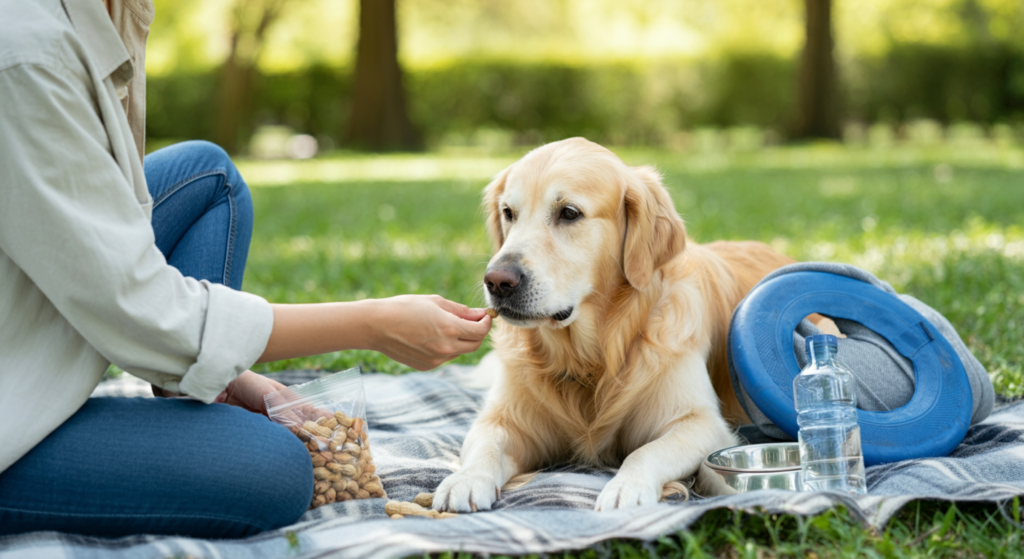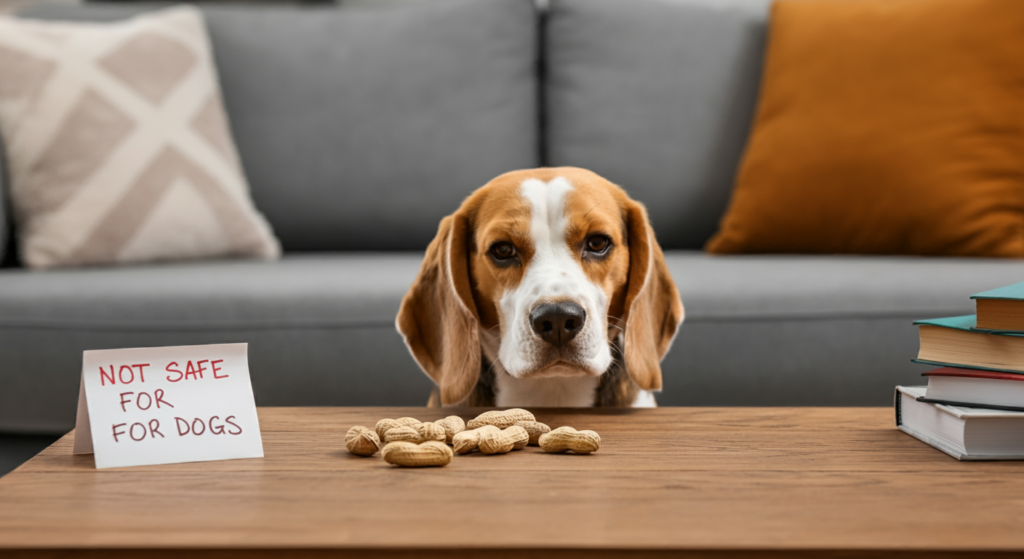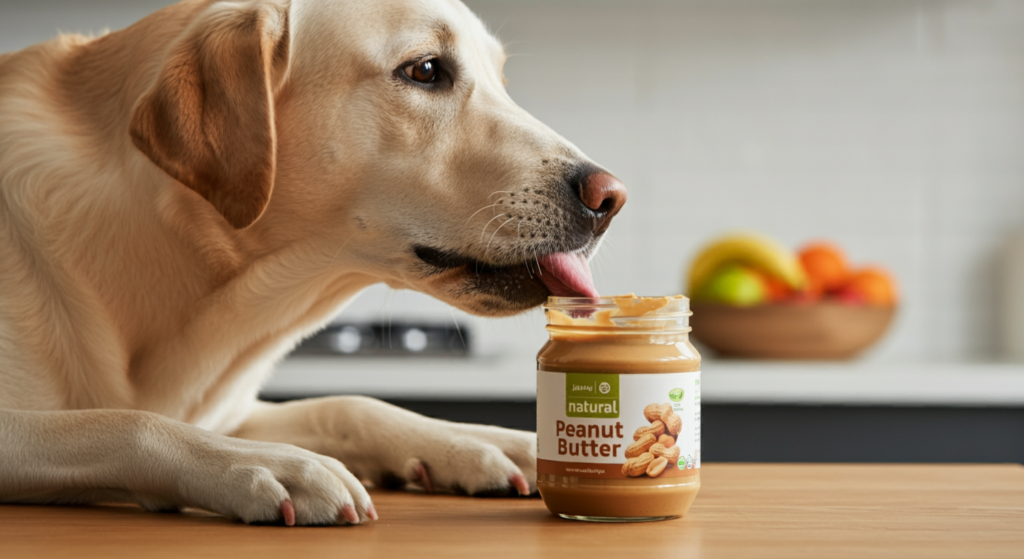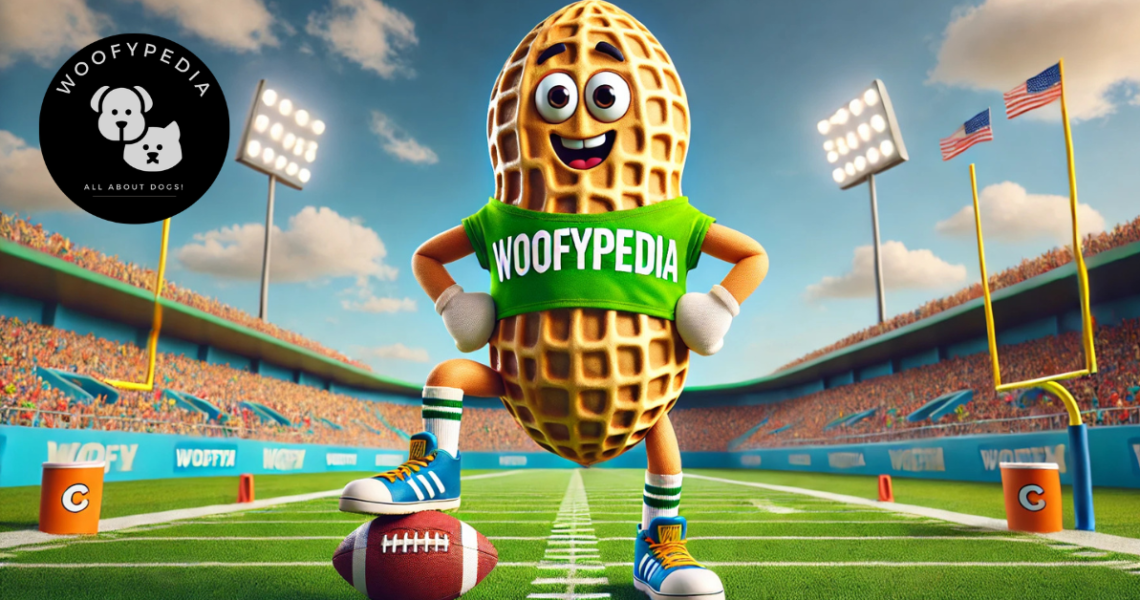Can dogs eat Peanuts?
Can Dogs Eat Peanuts? A Guide to Safe Snacking for Your Pup
As dog owners, we’re always mindful of what’s safe for our furry friends to consume. With many human foods posing risks to dogs, it’s only natural to wonder about common items in our diet. Peanuts, a globally loved snack and ingredient, often raise the question: “Can dogs eat peanuts?” While peanuts are a healthy treat for humans, it’s essential to understand their suitability for canine consumption. Being informed can help you make the best choices for your pup’s health and happiness.
Yes, dogs can eat peanuts, but only under specific conditions. When served plain, unsalted, and in moderation, peanuts are safe for dogs and may even provide some health benefits. However, not all peanuts are dog-friendly. Factors like preparation, added ingredients, and portion size are important to consider when deciding whether to offer this treat to your pet. Let’s dive deeper to ensure you’re making the best choice for your dog’s health.
Table of Contents

What Are Peanuts?
Peanuts are legumes, not true nuts, and they originate from South America. They’re rich in protein, healthy fats, and various vitamins and minerals. In human cuisine, peanuts are often roasted, salted, or processed into peanut butter. While these forms add flavour, they may introduce harmful substances for dogs, such as excess salt, sugar, or artificial sweeteners. Understanding these differences is crucial before sharing peanuts with your pet.
Can Dogs Eat Peanuts?
The simple answer is yes, dogs can eat peanuts, but only in moderation and under certain conditions. When served plain and unsalted, peanuts can provide health benefits. They’re rich in protein and healthy fats, which may contribute to a shiny coat and overall vitality.
However, not all peanuts are created equal. Can dogs eat roasted peanuts? Yes, but they should be free of salt, seasoning, or oil. The same applies to peanut butter, which must not contain xylitol—a sweetener that is highly toxic to dogs.
What Are the Benefits of Peanuts for Dogs?
Peanuts, when prepared correctly and offered in moderation, can provide certain benefits to your dog. While not essential to a dog’s diet, these legumes contain nutrients and compounds that may support your pet’s overall health. Here are some potential benefits of peanuts for dogs:
- Rich in Healthy Fats
Peanuts are an excellent source of monounsaturated fats, which can contribute to a shiny coat and healthy skin for your dog. These fats are considered “good fats” and can support cardiovascular health when included in moderation. - High in Protein
Protein is essential for muscle development and repair. Peanuts are rich in protein, making them a potentially nutritious snack for active dogs. - Provides Vitamins and Minerals
Peanuts contain several beneficial nutrients, such as:
- Vitamin B3 (Niacin): Supports energy metabolism and healthy skin.
- Vitamin E: Helps maintain a healthy coat and immune system.
- Magnesium: Contributes to muscle and bone health.
- Antioxidant Properties
Peanuts contain antioxidants that help fight free radicals in your dog’s body, supporting overall health and reducing oxidative stress. - Supports Energy Levels
The combination of protein and healthy fats in peanuts can provide a quick energy boost, making them an occasional treat for active dogs.

Are Peanuts Bad for Dogs?
In moderation, plain peanuts are not bad for dogs. However, excessive consumption or peanuts prepared with harmful additives can lead to health problems. Here are some considerations:
- Caloric Content
Peanuts are calorie-dense due to their fat content. Feeding your dog too many peanuts can contribute to:
- Weight Gain: Regular consumption of high-fat treats can lead to obesity.
- Pancreatitis: Excessive fat intake may trigger this painful and potentially life-threatening condition.
- Choking Hazard
Whole peanuts can pose a choking risk, especially for smaller dogs. Always ensure peanuts are unshelled and broken into manageable pieces. - Allergic Reactions
Though rare, some dogs may be allergic to peanuts. Signs of an allergic reaction include:
- Itching or scratching
- Swelling of the face or paws
- Difficulty breathing
- Harmful Additives
Many commercially available peanuts are salted, roasted in oil, or coated with flavourings that are harmful to dogs. Avoid peanuts with:
- Salt: Excess sodium can lead to dehydration or sodium poisoning.
- Sugar or Sweeteners: Xylitol, in particular, is extremely toxic to dogs.
- Digestive Upset
Even plain peanuts can upset a dog’s stomach if consumed in large quantities. Symptoms include:
- Diarrhoea
- Vomiting
- Gas or bloating
How Many Peanuts Can Dogs Eat?
Portion control is key when feeding peanuts to dogs. A small dog may only tolerate one or two peanuts, while larger breeds might enjoy a few more. Always introduce peanuts gradually to observe any adverse reactions, such as allergic responses or digestive issues.
Can Puppies Eat Peanuts?
Yes, puppies can eat peanuts, but only in moderation and under strict conditions. Peanuts are not toxic to puppies, but their small size, developing digestive systems, and specific nutritional needs require extra caution. Here’s what you need to know:
Key Guidelines:
- Plain and Unsalted Only: Puppies should only eat plain, unsalted peanuts without any added oils, sugar, or artificial sweeteners (especially xylitol, which is toxic to dogs).
- Small Quantities: Due to their high fat content, peanuts should be given sparingly to avoid digestive upset or potential long-term issues like pancreatitis.
- Choking Hazard: Ensure peanuts are shelled and crushed into smaller pieces to prevent choking, especially for small breeds or very young puppies.
- Nutritional Considerations: Puppies require a balanced diet tailored to their growth and development. Treats like peanuts should not make up more than 10% of their daily caloric intake.
Risks for Puppies:
- Allergic Reactions: Like humans, puppies can develop allergies to peanuts. Watch for signs like itching, swelling, vomiting, or diarrhoea after consumption.
- Digestive Issues: High-fat foods like peanuts may cause stomach upset, especially in puppies with sensitive systems.
- Obesity Risk: Overfeeding calorie-dense peanuts can contribute to weight gain, which is harmful during the critical growth phase.
Puppies can enjoy peanuts as an occasional treat if they are plain, unsalted, and given in small amounts. However, it’s always best to consult your vet before introducing new foods to your puppy’s diet. Prioritise puppy-specific treats and food to ensure optimal nutrition and safety.
Fun Facts About Dogs and Peanuts
- Some dogs adore the taste of peanuts and will do anything for a spoonful of peanut butter.
- Peanut butter is often used to hide medication or as a filling in dog toys for mental stimulation.
- Did you know George Washington Carver popularised peanut cultivation? While dogs don’t need peanuts, they’re a fascinating food in human history.

Conclusion
So, can dogs eat peanuts? The answer is yes—with precautions. Always serve plain, unsalted, and unshelled peanuts in moderation. Avoid roasted peanuts with added salt, oil, or seasonings, and steer clear of peanut butter containing xylitol. If your dog accidentally consumes salted or flavoured peanuts, consult your veterinarian for advice, especially if you notice any concerning symptoms. Remember, your dog’s health and safety come first. Have you tried giving your dog peanuts? Share your experience below!
FAQ: Can Dogs Eat Peanuts?
1. Are peanuts toxic to dogs?
No, peanuts are not toxic to dogs. However, they should be given in moderation and without harmful additives like salt, sugar, or artificial sweeteners such as xylitol, which is toxic to dogs.
2. How many peanuts can a dog eat a day?
Dogs can safely eat 1-2 plain, unsalted peanuts as an occasional treat, depending on their size and dietary needs. Larger dogs may tolerate slightly more, but overfeeding can lead to weight gain or digestive upset.
3. Why can dogs eat peanut butter but not peanuts?
Dogs can eat both peanuts and peanut butter. However, peanut butter is often easier for dogs to digest because it’s processed into a spreadable form. Always check that peanut butter does not contain xylitol, which is highly toxic to dogs.
4. Can dogs eat peanuts in the UK?
Yes, dogs in the UK can eat peanuts as long as they are plain, unsalted, and given in moderation. Always ensure they are free from harmful coatings or added ingredients.
5. Can dogs eat peanut butter?
Yes, most dogs can enjoy peanut butter in moderation. Choose natural, unsweetened varieties without xylitol or excessive salt. It’s a popular choice for hiding medication or as a reward.
6. Can dogs eat dry roasted peanuts?
Dogs can eat dry roasted peanuts as long as they are plain and unsalted. Avoid any flavoured or spiced varieties, as they may contain harmful ingredients.
7. Can dogs eat peanuts in the shell?
No, dogs should not eat peanuts in the shell. The shells are hard to digest and can pose a choking hazard or cause intestinal blockages.
8. Can dogs eat salted peanuts?
It’s best to avoid giving dogs salted peanuts. Excess salt can lead to sodium poisoning or dehydration, especially in small dogs.
9. Can dogs eat peanuts every day?
No, peanuts should not be a daily treat for dogs. They are high in fat and calories, which can lead to weight gain or pancreatitis if consumed regularly.
10. Can dogs eat boiled peanuts?
Plain, unsalted boiled peanuts can be given to dogs in moderation. However, the soft texture may make them easier to overfeed, so portion control is crucial.
11. My dog ate salted peanuts — what should I do?
Monitor your dog for signs of dehydration or sodium poisoning, such as vomiting, diarrhoea, or lethargy. Provide fresh water and contact your vet if symptoms occur or you’re concerned.
12. What should I do if my dog eats peanuts?
If your dog eats plain, unsalted peanuts, there’s usually no need for concern. However, if they eat a large amount or peanuts with harmful additives (e.g., salt, xylitol), contact your vet for advice. Monitor for any unusual symptoms like vomiting or diarrhoea.
